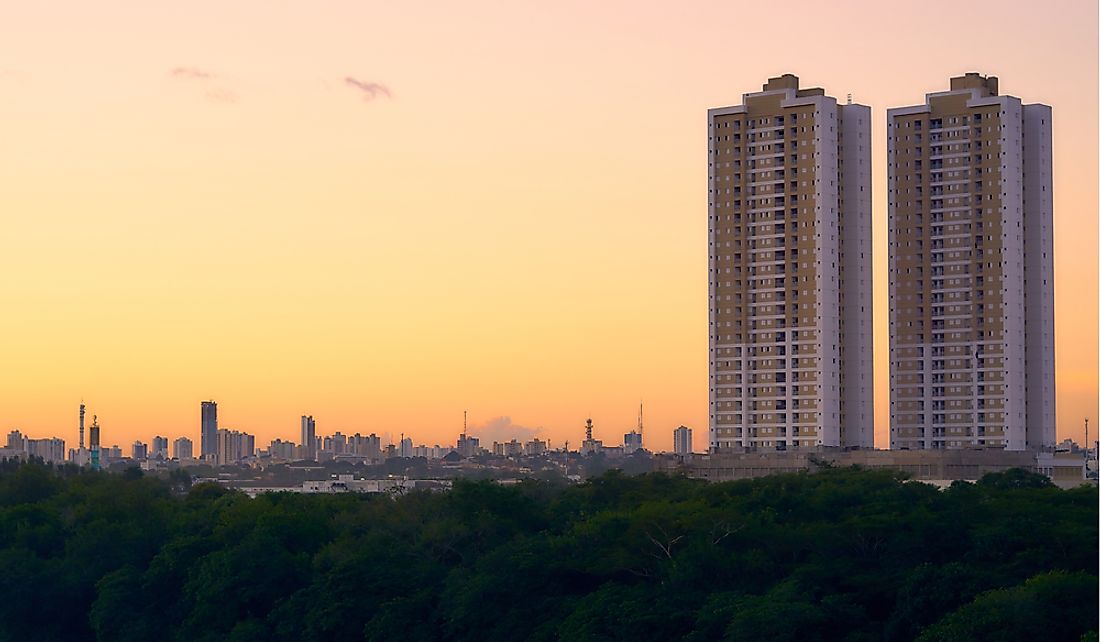Cuiabá - The Capital Of Mato Grosso State Of Brazil

The state of Mato Grosso is located in western Brazil and forms part of the country's international border with Bolivia. With an area of 903,357 km2 and an estimated population of 3,441,998, Mato Grosso is Brazil's third most extensive state and its 17th most populous. Mato Grosso has a relatively flat landscape and contains three different ecosystems: the Amazon rainforest, Pantanal, and Cerrado. Pastureland covers nearly 40% of the state’s area, and it features numerous tourist attractions including Chapada dos Guimarães National Park, which has grottoes, caves, and waterfalls. The Pantanal is the largest wetland habitat in the world and is inhabited by many types of aquatic animals, birds, and terrestrial species. Cuiabá is the capital of Mato Grosso.
Capital of Mato Grosso
Cuiabá occupies an area of 3,291 km2 and has an average elevation of 165 m. Located in the heart of the continent, the city is known as the Geographical Centre of South America. Additionally, many major roads and waterways converge at Cuiabá. The city is located in the transition zone of Brazil's three major ecosystems and is one of the hottest cities in the country. Cuiabá experiences a tropical wet and dry climate with temperatures that often reach above 40 °C.
Demographics of Cuiabá
Cuiabá has an estimated population of 607,153 and a population density of 180 persons per square kilometer. It is a multicultural city that is home to numerous ethnic groups. Given its diversity, Cuiabá has a rich culture that features interesting cuisines, indigenous dances, music, and craftwork.
History of Cuiabá
Cuiabá was established by Portuguese colonists on January 1, 1727. In 1746, much of Cuiabá was severely damaged due to an earthquake but was later rebuilt. In 1818, it was granted the status of a township and in 1835 it was named the capital of Mato Grosso. Despite serving as the state capital, Cuiabá was a small town and did not experience much growth until the Paraguayan War. During the war, Cuiabá experienced rapid growth, as it supplied much of the food and resources needed by Brazilian troops. Since the beginning of the 20th century, Cuiabá has experienced steady growth due to the construction of roads and airports.
Economy of Cuiabá
Cuiabá is one of Brazil’s fastest-growing cities and acts as the trading hub for agricultural commodities produced in the surrounding regions. The city's economy is primarily based on services, industry, and commerce. People from smaller towns surrounding Cuiabá travel to the city to trade goods and access services not available in their hometowns. Food processing is the biggest industry in Cuiabá, while tourism has experienced significant growth in recent years.











